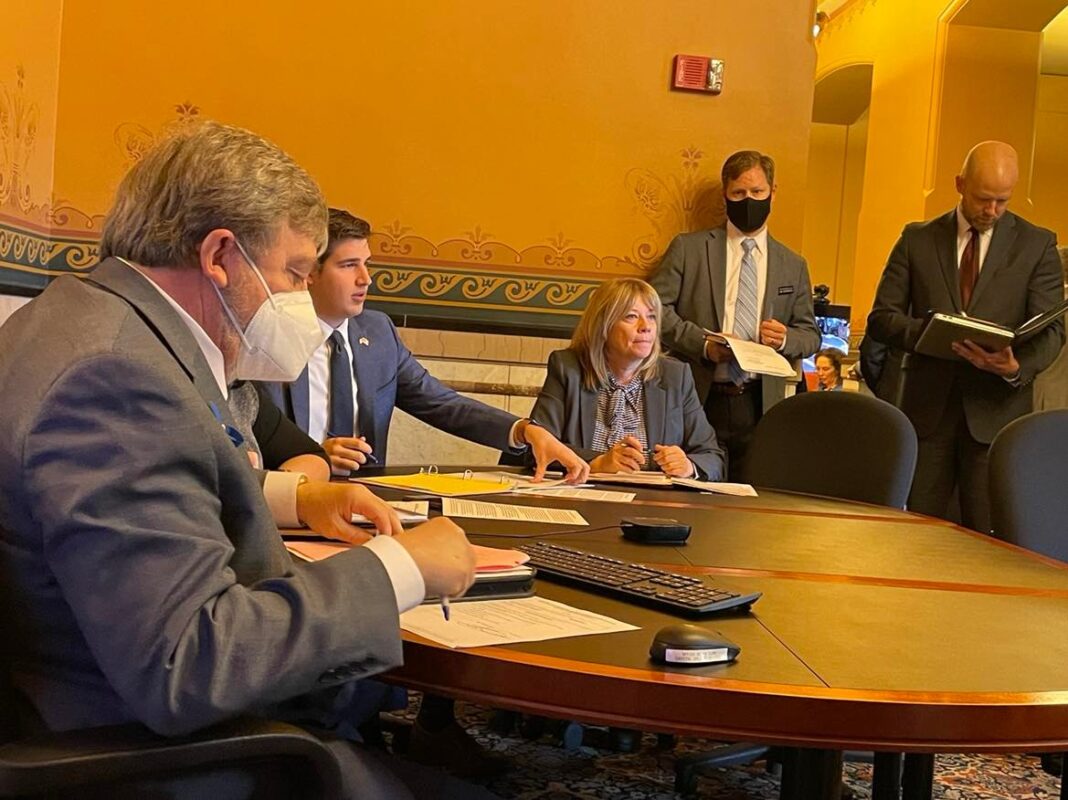An Iowa House subcommittee advanced Senate File 496 to the full committee on Tuesday morning. The bill states an employer shall not require a low-wage employee to enter into a noncompete agreement. Noncompete agreements entered into between an employer and an employee on or after the effective date of the legislation would be void and unenforceable.
A low-wage employee is defined as an employee whose average monthly wage is less than or equal to $14.50 an hour.
Democrat State Rep. Charlie McConkey said he likes the bill, but thinks it needs some work.
Republican Rep. Carter Nordman signed off in support of the bill as well, but did not offer any comment.
Nick Laning of IBEW Iowa State Conference spoke in support of the bill, but noted the organization is working on ideas to improve it.
“We just think this is a small step forward for those low-wage earners,” he said.
The purpose of noncompete agreements is to protect intellectual property and high-level protection against financial issues, he added.
“We think protecting everyday workers is a good thing and good for the economy and our workforce,” he said.
Peter Hird of Iowa Federation of Laord, AFL-CIO said the group has heard a lot of examples of this scenario being brought up. He spoke about one person who worked at a pizza place and signed paper work with a $10,000 noncompete agreement. The individual made less than $15/hour and left to work at another place, but the noncompete said she couldn’t work anywhere that sold or made pizza within 50 miles.
“I think some of these contracts are getting pretty egregious,” Hird said. “They’re really limiting the amount of work people can do.”
Another concern with the bill was finding a way to include apprenticeships. A pipefitter apprentice was taken to court and could not work within Webster City due to a noncompete. The individual could only work outside of Webster City.
Nathan Blake of the Iowa Attorney General’s Office said they are neutral on the bill. They’re in favor of doing something, but he isn’t 100 percent convinced a salary threshold is the best way to approach the issue.
“One concern is this doesn’t come as a safe harbor for employers,” he said.
He said he doesn’t want to see businesses engage in “some other activity” that is inappropriate because someone is making $15/hour.
“I guess that’s our primary concern, but the underlying purpose is something worth exploring,” he said.
Jim Carney and Doug Struyk of the Iowa Bar Association spoke out against the bill. Carney asked what the remedy is under the bill, noting there is no remedy.
Representative Cherielynn Westrich, who chaired the subcommittee, called the bill an “important step” to take, but also acknowledged it may need some work in its current form.
“I think it’s a great concept, but I want to make sure we work through some of these issues that have been brought forward today in this subcommittee,” she said.















